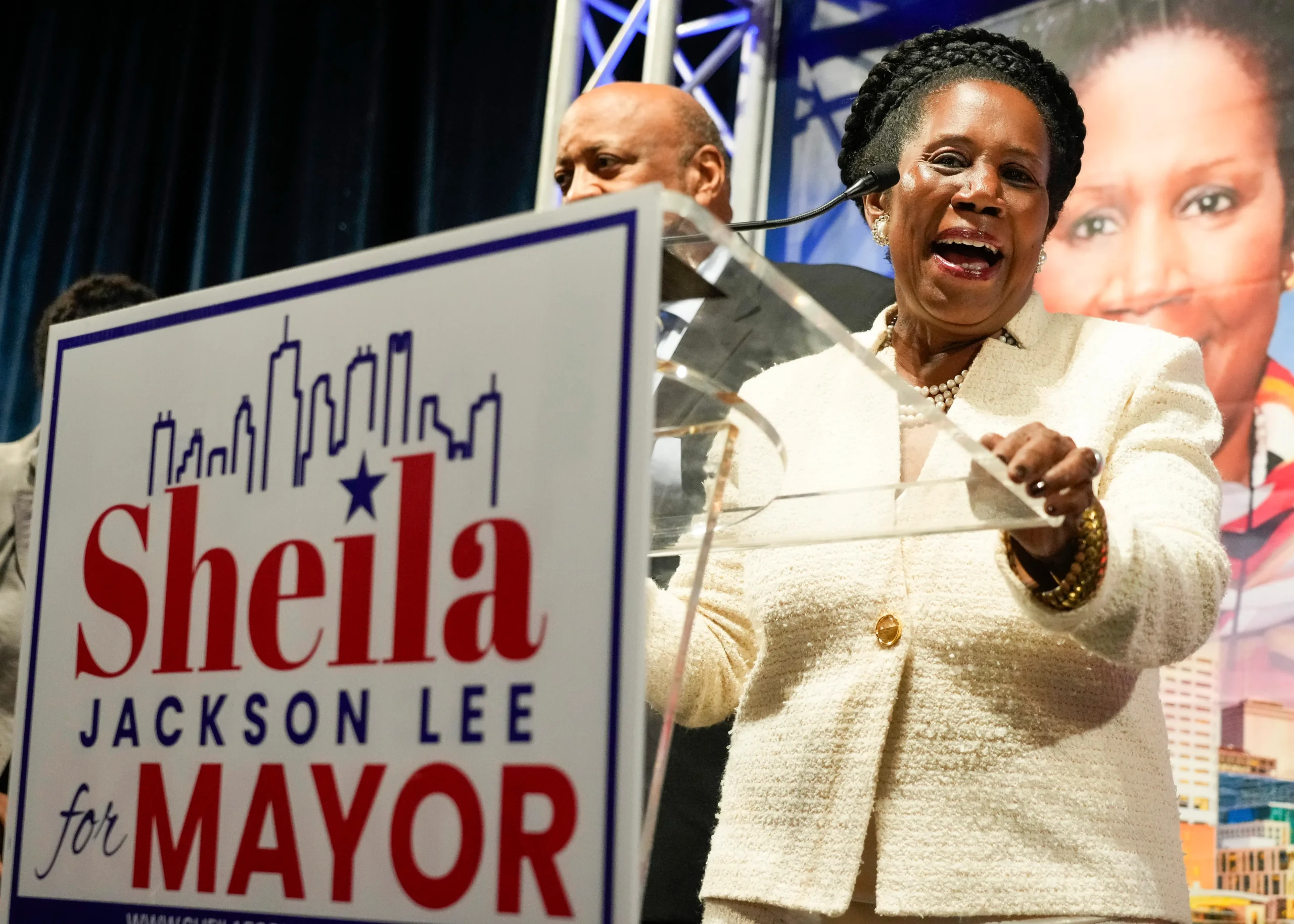Congresswoman Sheila Jackson Lee Announces Bid for Houston Mayoral Race
Congresswoman Sheila Jackson Lee has officially announced her candidacy for the Houston mayoral race. This marks a significant shift for Jackson Lee, who has represented Texas’ 18th Congressional District since 1995. Her entry into the race has been anticipated for some time and has already impacted the political landscape, with several candidates eyeing her congressional seat should she win the mayoral election.
Jackson Lee’s decision to run comes with a strong backing of financial support. Despite entering the race relatively late, she has raised over $1.2 million, showcasing her fundraising capabilities and strong support base. Her campaign, however, will need to address a few over-limit contributions to comply with local campaign finance laws (KHOU) (Houston Public Media).
The Houston mayoral race is shaping up to be highly competitive, with Jackson Lee and State Senator John Whitmire emerging as the front-runners. Both candidates are seasoned politicians with substantial name recognition and fundraising prowess. Whitmire, who has been a state senator since 1982, has a significant campaign war chest of nearly $9.9 million, including funds carried over from his state senate campaigns. This financial muscle makes the race even more intense as both candidates vie for the top spot .
The election, scheduled for November 7, 2024, also includes other notable candidates such as Houston City Council member Robert Gallegos, former METRO board chair Gilbert Garcia, and attorney Lee Kaplan. Each candidate brings their own strengths and campaign strategies, but the primary contest is expected to be between Jackson Lee and Whitmire due to their extensive political backgrounds and fundraising capabilities.
Jackson Lee’s announcement has sparked discussions about potential successors for her congressional seat, with several local politicians considering a run if she vacates her position. This includes figures like Sylvester Turner, Borris Miles, and Jolanda Jones, among others, who could step into the race for the safely Democratic district.
Sheila Jackson Lee’s entry into the Houston mayoral race adds a dynamic element to the election, promising a closely watched and highly competitive campaign season ahead.
Sheila Jackson Lee Pushes for New Legislation on Police Reform
Congresswoman Sheila Jackson Lee has been a steadfast advocate for police reform, and her recent efforts have focused on pushing new legislation aimed at addressing systemic issues within law enforcement. This initiative is part of her broader strategy to enhance accountability, transparency, and community relations in policing.
Jackson Lee’s proposed legislation seeks to implement several key reforms. Central to her proposal is the establishment of a national database to track police misconduct. This database would be accessible to law enforcement agencies, ensuring that officers with a history of misconduct are not able to move from one department to another without accountability. This measure aims to reduce the incidence of police misconduct and enhance the integrity of law enforcement agencies across the country.
Additionally, Jackson Lee’s bill calls for mandatory body cameras for all police officers. The use of body cameras is intended to increase transparency and provide a clear account of police interactions with the public. This technology is seen as a critical tool in preventing abuse and ensuring that officers are held accountable for their actions. The legislation also includes provisions for the funding and training necessary to implement body camera programs effectively.
Another significant aspect of Jackson Lee’s reform package is the emphasis on de-escalation training. The bill mandates that all police officers undergo comprehensive de-escalation training to better handle encounters with individuals who are in crisis or experiencing mental health issues. This training is designed to reduce the use of force and improve outcomes in high-stress situations, fostering safer interactions between law enforcement and the community.
Furthermore, Jackson Lee is advocating for the end of qualified immunity for law enforcement officers. This legal doctrine has often shielded officers from civil liability for misconduct, making it difficult for victims to seek justice. By eliminating qualified immunity, the legislation aims to ensure that officers who violate individuals’ rights can be held personally liable, thereby enhancing accountability and justice for victims of police misconduct.
Jackson Lee’s reform efforts also extend to the financial aspects of policing. Her legislation proposes redirecting funding from traditional policing methods to community-based programs that address root causes of crime, such as mental health services, housing, and education. This approach aims to create a more holistic and supportive environment for communities, reducing reliance on punitive measures and promoting long-term public safety.
These legislative efforts by Sheila Jackson Lee are part of a broader movement to reshape the criminal justice system and build trust between law enforcement and the communities they serve. Her proposal has garnered support from various advocacy groups, civil rights organizations, and some lawmakers, although it also faces opposition from those who argue that it may undermine law enforcement capabilities. As the debate continues, Jackson Lee remains committed to advancing her vision for a fairer and more just policing system.
Rep. Sheila Jackson Lee Advocates for Voting Rights in Heated House Debate

Rep. Sheila Jackson Lee has been at the forefront of the battle for voting rights, championing legislation aimed at safeguarding and expanding access to the ballot. Her latest efforts were highlighted in a recent, highly charged debate on the House floor, where she staunchly defended her proposals against opposition from various quarters.
Jackson Lee’s advocacy is centered around the John R. Lewis Voting Rights Advancement Act, named in honor of the civil rights icon. This legislation seeks to restore and strengthen key provisions of the Voting Rights Act of 1965, which were weakened by the Supreme Court’s 2013 decision in Shelby County v. Holder. The act aims to address voter suppression tactics that have resurfaced across the country, such as restrictive voter ID laws, purges of voter rolls, and reductions in early voting opportunities.
During the debate, Jackson Lee underscored the critical need for federal protections to ensure that every eligible voter can exercise their right without undue hindrance. She passionately argued that voter suppression efforts disproportionately affect minority communities, undermining the democratic process. Her speech highlighted numerous instances where states have enacted laws that make it more difficult for people of color, the elderly, and disabled individuals to vote, citing examples from recent elections across the nation.
In response to critics who argue that such legislation is unnecessary or overly restrictive, Jackson Lee emphasized the historical context and ongoing challenges faced by marginalized communities. She pointed to data showing significant disparities in voter turnout and access, particularly in states with a history of discriminatory practices. “This is not just about policy; it’s about preserving the very essence of democracy,” she declared, urging her colleagues to support the legislation to prevent the erosion of voting rights.
The debate also featured discussions on the Freedom to Vote Act, another key piece of voting rights legislation co-sponsored by Jackson Lee. This bill seeks to standardize voting procedures nationwide, aiming to make it easier for all Americans to vote by establishing national standards for mail-in voting, early voting, and voter registration. It also includes measures to curb partisan gerrymandering and increase transparency in campaign finance, reinforcing the integrity of the electoral process.
Jackson Lee’s efforts have not gone without opposition. Critics argue that her proposals could federalize elections, potentially overriding state laws and local election administration practices. They caution that such measures could lead to unintended consequences, including increased bureaucracy and challenges in implementing uniform standards across diverse states.
Despite the opposition, Jackson Lee remains undeterred, rallying support from her colleagues and advocacy groups. Her unwavering commitment to voting rights continues to inspire and mobilize activists across the country. As the debate progresses, the future of voting rights legislation in Congress remains a critical focal point, with Jackson Lee’s leadership playing a pivotal role in the fight to protect and expand access to the ballot for all Americans.
Sheila Jackson Lee Calls for Increased Funding in Healthcare Amid Pandemic
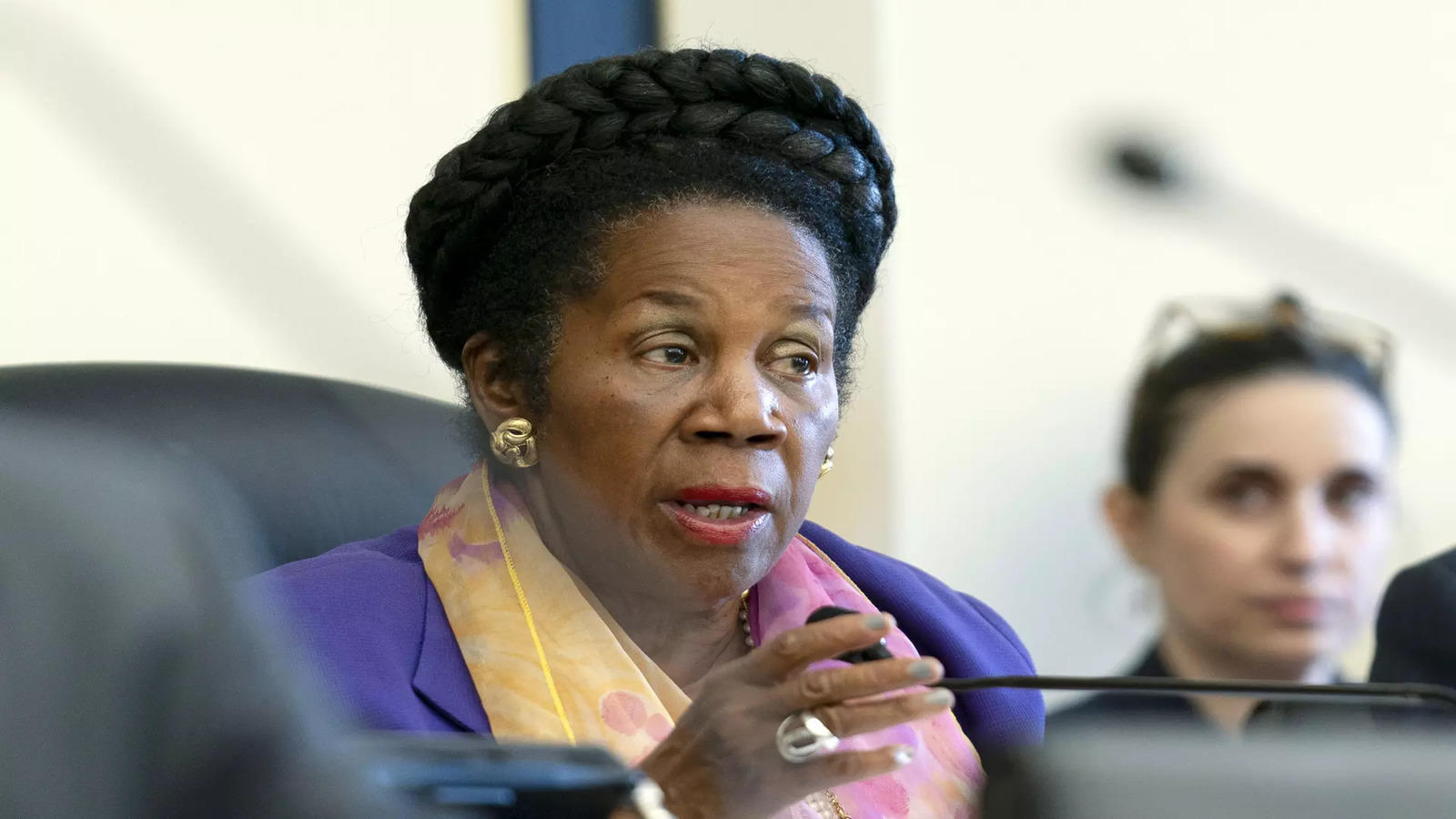
Congresswoman Sheila Jackson Lee has been a vocal advocate for increased healthcare funding, particularly in response to the ongoing challenges posed by the COVID-19 pandemic. Her recent calls for enhanced financial support for healthcare systems highlight her commitment to ensuring that all Americans have access to comprehensive and affordable healthcare services.
Jackson Lee’s push for increased healthcare funding is driven by the recognition that the pandemic has exacerbated existing disparities in healthcare access and outcomes, especially for communities of color and low-income populations. In her recent statements and legislative efforts, she has stressed the need for sustained investment in public health infrastructure, healthcare facilities, and the healthcare workforce.
One of the central components of Jackson Lee’s advocacy is her support for legislation that would bolster funding for the Centers for Disease Control and Prevention (CDC) and the National Institutes of Health (NIH). She argues that these agencies are crucial for managing public health crises, conducting essential research, and developing vaccines and treatments. Jackson Lee has called for significant increases in funding to enhance their capacity to respond to current and future health emergencies, ensuring that the U.S. is better prepared to handle pandemics and other public health threats.
Additionally, Jackson Lee has emphasized the importance of expanding healthcare coverage through programs like Medicare and Medicaid. She has advocated for the expansion of Medicaid in states that have not yet adopted it, arguing that this would provide millions of low-income Americans with much-needed healthcare coverage. Her efforts also include pushing for the inclusion of essential health benefits and preventive services in Medicare, aiming to reduce healthcare costs and improve health outcomes for seniors and vulnerable populations.
In her public addresses and committee work, Jackson Lee has also highlighted the need to address healthcare workforce shortages, particularly in underserved areas. She has advocated for increased funding for medical education, scholarships, and loan repayment programs for healthcare professionals who commit to working in high-need areas. Jackson Lee argues that strengthening the healthcare workforce is essential for expanding access to care and improving healthcare quality across the nation.
Moreover, Jackson Lee has called for the expansion of telehealth services, which have proven to be a vital tool during the pandemic. She supports legislation that would increase funding for telehealth infrastructure, technology, and training for healthcare providers, making it easier for patients to receive care remotely, especially in rural and underserved communities.
Jackson Lee’s advocacy for increased healthcare funding also extends to mental health services. She has pushed for greater investment in mental health care, recognizing the significant impact of the pandemic on mental health and the need for accessible, comprehensive mental health services. Her proposals include increasing funding for mental health treatment programs, crisis intervention services, and community-based mental health care.
Sheila Jackson Lee’s calls for increased healthcare funding underscore her commitment to building a stronger, more equitable healthcare system that can effectively address the needs of all Americans, particularly in times of crisis. Her legislative efforts and advocacy continue to push for the resources and reforms necessary to enhance healthcare access, quality, and resilience across the United States.
Houston’s Sheila Jackson Lee Speaks Out on Immigration Reform at Capitol Hill
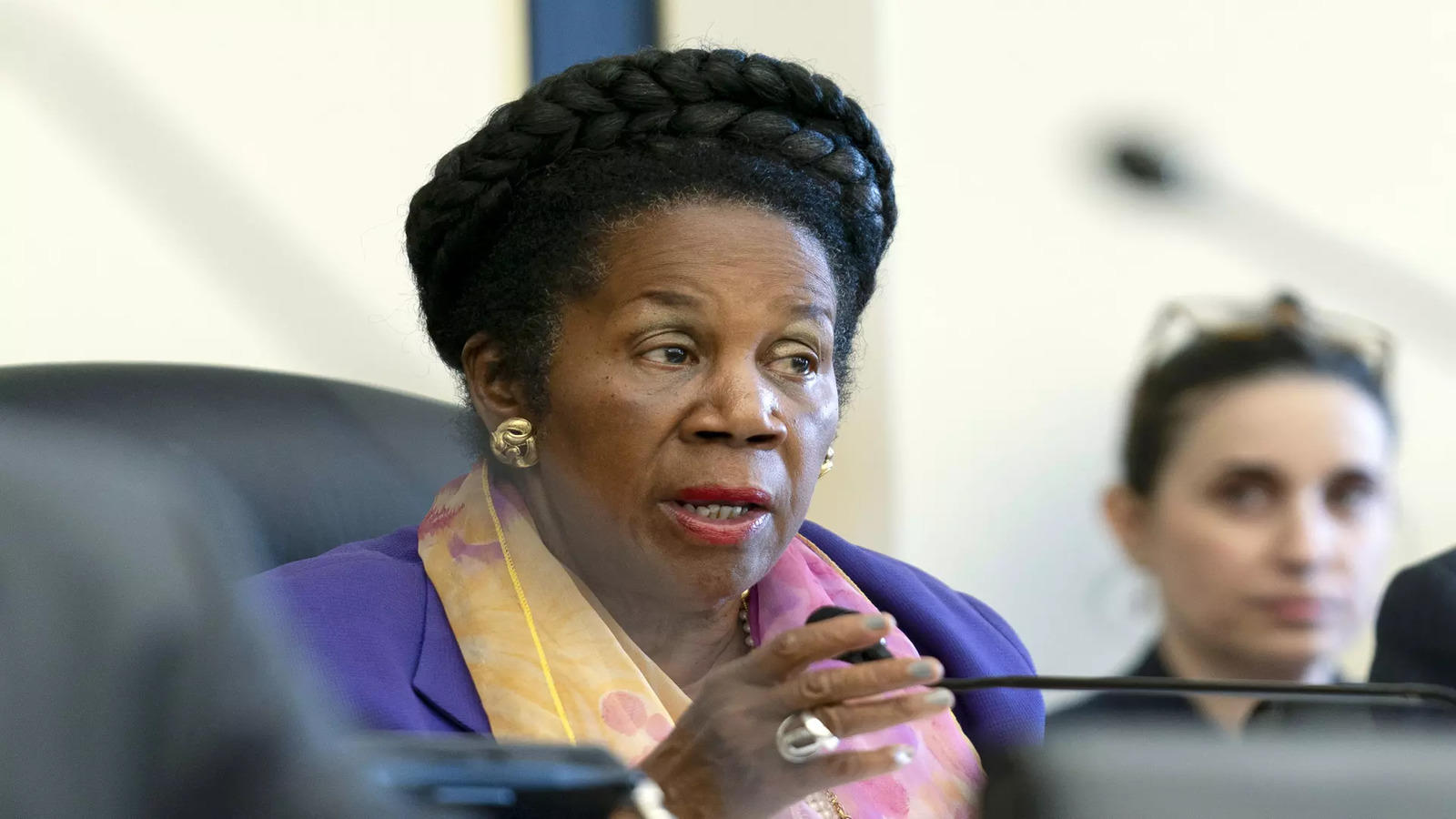
Congresswoman Sheila Jackson Lee has been a steadfast advocate for comprehensive immigration reform, using her platform to push for legislative changes that address the complex issues facing immigrants in the United States. Her latest statements and actions on Capitol Hill highlight her continued commitment to reforming the immigration system to ensure fairness, safety, and humanity for all immigrants.
Jackson Lee’s advocacy is driven by her long-standing belief in the fundamental rights of immigrants and the need for a system that upholds dignity and justice. She has been vocal in her calls for comprehensive immigration reform that includes a pathway to citizenship for undocumented immigrants, protection for Dreamers, and the reunification of separated families. Her legislative proposals have sought to address the root causes of migration, improve border security while ensuring human rights, and enhance the legal immigration system.
One of the cornerstone pieces of Jackson Lee’s legislative agenda is the support for the American Dream and Promise Act, which aims to provide a pathway to citizenship for Dreamers—young people brought to the U.S. as children. This bill also extends protections to individuals with Temporary Protected Status (TPS) and Deferred Enforced Departure (DED). Jackson Lee has emphasized that these individuals, who have lived in the U.S. for many years, contribute significantly to the nation’s economy and communities, and deserve a chance to legalize their status and live without fear of deportation.
In addition to advocating for Dreamers, Jackson Lee has been a strong proponent of legislation to protect immigrant families from separation and deportation. She supports the Fair Day in Court for Kids Act, which aims to ensure that children and families have legal representation and access to fair hearings. Jackson Lee argues that providing legal support and due process is essential to upholding justice and protecting vulnerable individuals from the harsh realities of the current immigration system.
Jackson Lee’s stance on immigration reform also includes calls for reforms to the asylum process. She has advocated for legislation that streamlines the asylum system to make it more efficient and humane, ensuring that individuals fleeing persecution have timely access to asylum hearings and support. Her efforts aim to eliminate backlogs and reduce the lengthy waiting periods that often leave asylum seekers in limbo.
Jackson Lee has been a vocal critic of policies that she views as punitive and inhumane, such as family detention and the separation of families at the border. She has called for the closure of detention facilities that fail to meet basic human rights standards and has pushed for investments in community-based alternatives to detention.
Jackson Lee’s advocacy on immigration reform extends to her work on various congressional committees, where she continues to push for legislation that promotes comprehensive immigration reform. Her efforts are part of a broader movement among lawmakers, advocacy groups, and communities across the country, all pushing for a more just and equitable immigration system.
As the debate over immigration reform continues on Capitol Hill, Sheila Jackson Lee remains a leading voice for change, advocating tirelessly for policies that reflect the values of justice, compassion, and respect for human dignity. Her work continues to inspire and mobilize supporters nationwide, highlighting the urgent need for comprehensive reform that addresses the needs and rights of all immigrants.
Sheila Jackson Lee Leads Charge on Climate Change Legislation
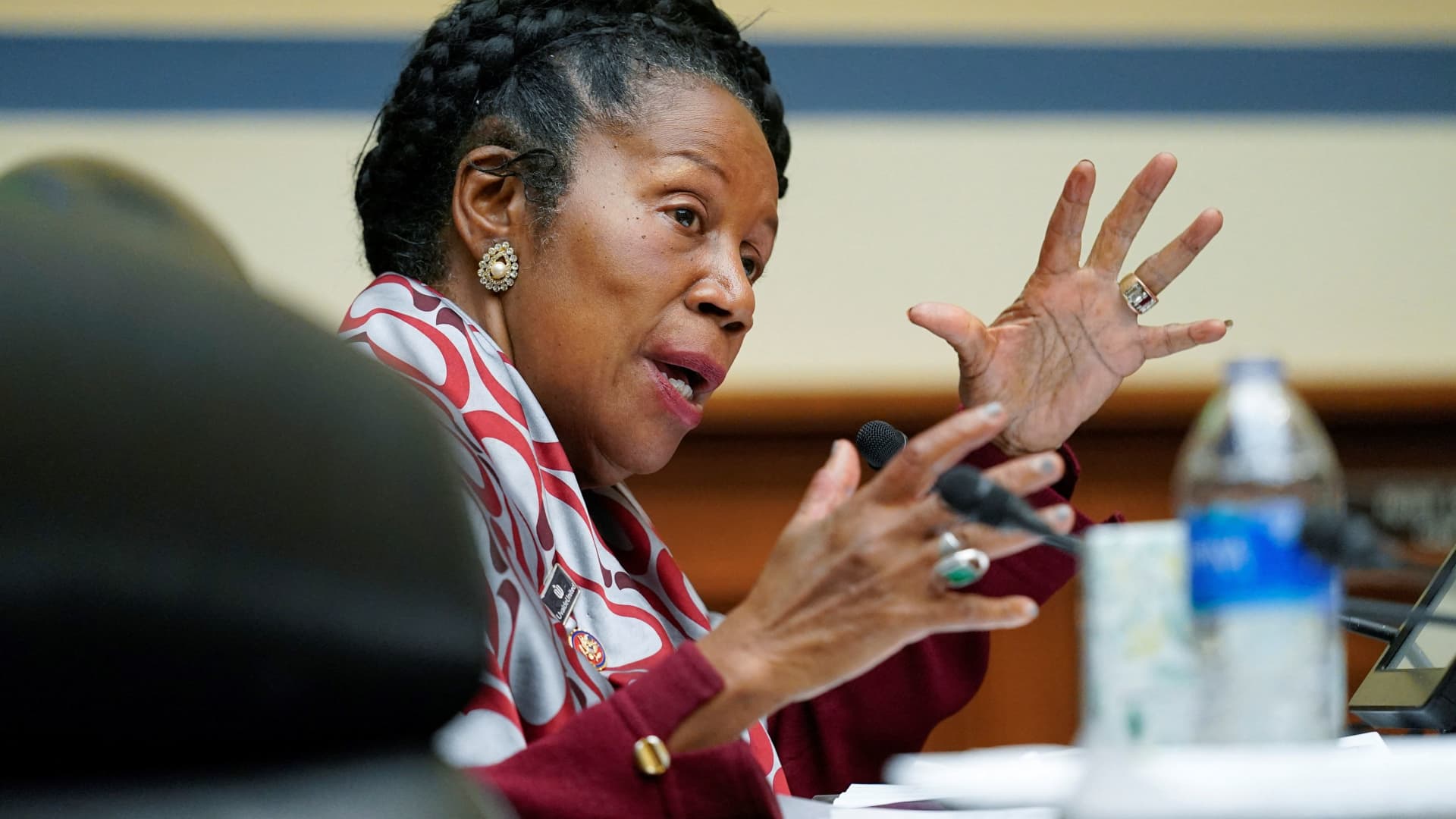
Congresswoman Sheila Jackson Lee has emerged as a leading advocate for climate change legislation, emphasizing the urgent need for comprehensive action to address the escalating environmental crisis. Her efforts in Congress are focused on advancing policies that mitigate the impacts of climate change, promote sustainable practices, and protect vulnerable communities from environmental hazards.
Jackson Lee’s climate agenda is deeply rooted in her commitment to environmental justice, which seeks to ensure that all communities, especially those that are marginalized and underserved, have access to a healthy environment. She has been vocal about the disproportionate effects of climate change on low-income communities and communities of color, which often face higher risks from pollution, extreme weather events, and other environmental threats.
One of the key pieces of legislation championed by Jackson Lee is the Climate Equity Act, which aims to integrate environmental justice principles into federal climate policies. This legislation seeks to allocate resources and support to communities most impacted by climate change, ensuring that they are not left behind in the transition to a sustainable economy. The Climate Equity Act includes provisions for investing in clean energy infrastructure, enhancing disaster resilience, and supporting community-led environmental initiatives.
Jackson Lee has also been a strong proponent of the Green New Deal, a comprehensive framework designed to address climate change and economic inequality simultaneously. She has advocated for ambitious goals outlined in the Green New Deal, such as achieving net-zero greenhouse gas emissions, transitioning to 100% renewable energy, and creating millions of green jobs. Jackson Lee’s support for the Green New Deal reflects her belief that tackling climate change presents an opportunity to build a more equitable and sustainable economy.
In addition to these broader initiatives, Jackson Lee has focused on specific legislative efforts to promote clean energy and reduce carbon emissions. She has introduced bills to expand renewable energy production, enhance energy efficiency standards, and support the development of green technologies. Her legislation includes provisions to incentivize the adoption of solar and wind energy, promote electric vehicle adoption, and invest in carbon capture and storage technologies.
Jackson Lee’s work on climate legislation also addresses the need for comprehensive climate adaptation strategies. She has advocated for increased funding for climate resilience projects, including the protection of coastlines, wetlands, and urban infrastructure from the impacts of sea-level rise and extreme weather. Jackson Lee has also pushed for stronger regulations on pollutants and greenhouse gas emissions, working to strengthen the Environmental Protection Agency’s (EPA) authority to enforce environmental standards.
Jackson Lee has been a vocal critic of policies and practices that undermine climate action, such as subsidies for fossil fuels and deregulation efforts that weaken environmental protections. She has called for a shift away from fossil fuel dependence and has worked to secure funding for research and development in clean energy technologies.
As the debate over climate change continues to intensify, Sheila Jackson Lee remains a steadfast advocate for bold, transformative action. Her legislative initiatives and leadership on climate issues reflect her dedication to protecting the planet and ensuring a sustainable future for generations to come. Her work continues to inspire and mobilize advocates, policymakers, and communities across the country, underscoring the critical need for urgent and effective climate action.
Congresswoman Sheila Jackson Lee Discusses Economic Inequality in Recent Town Hall
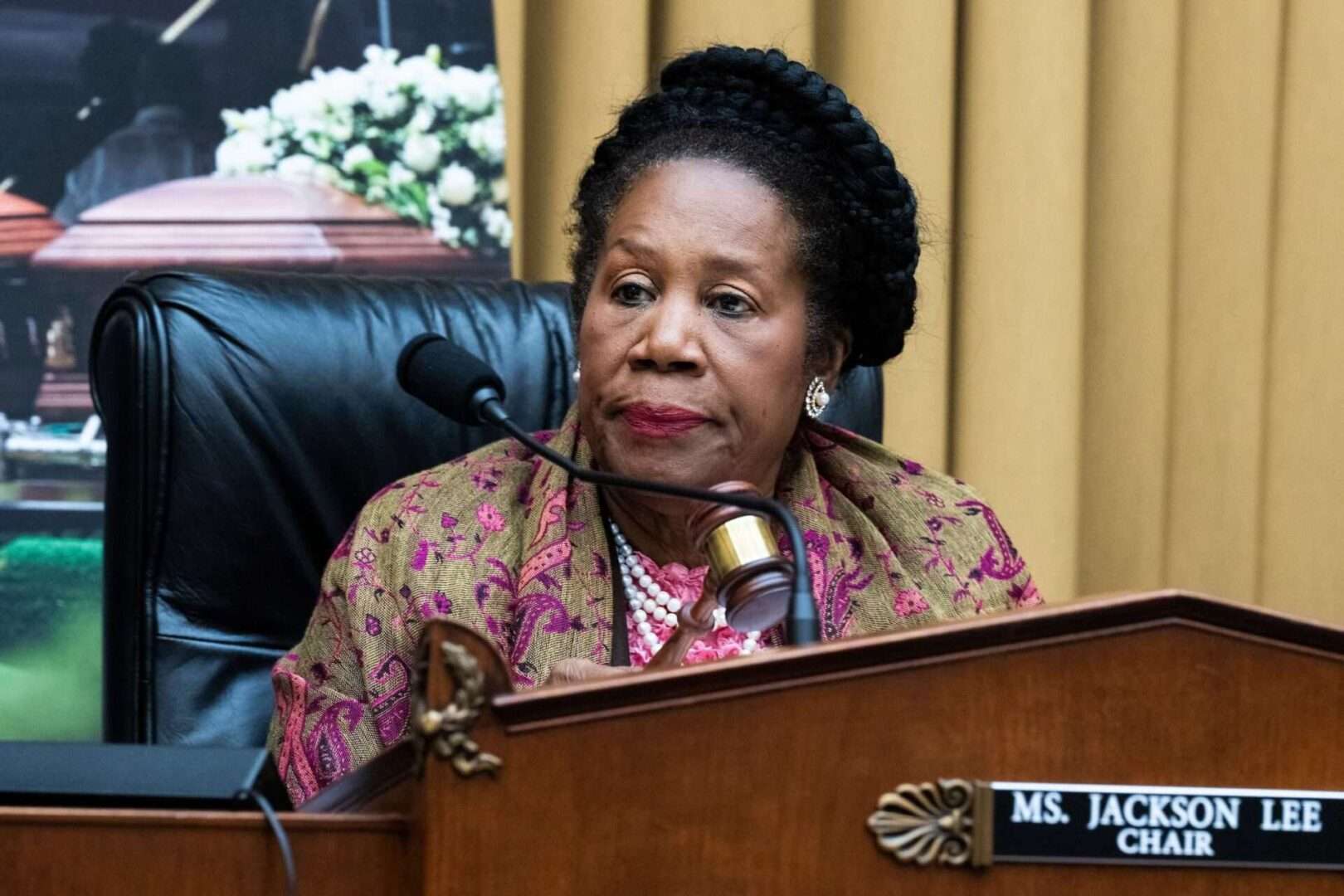
Congresswoman Sheila Jackson Lee recently hosted a town hall meeting to address the pressing issue of economic inequality, a topic she has passionately championed throughout her career. The event brought together community leaders, experts, and residents from across her district to discuss the roots of economic disparity and explore viable solutions to bridge the growing wealth gap.
During the town hall, Jackson Lee highlighted the stark reality of economic inequality in the United States, noting that millions of Americans continue to struggle with poverty, lack of access to healthcare, and inadequate educational opportunities. She emphasized that these challenges are not merely economic issues but also social justice issues, affecting the quality of life and future prospects for countless individuals, particularly in marginalized communities.
Jackson Lee’s discussion centered on her legislative initiatives aimed at addressing these disparities. One of her key proposals is the Economic Justice Act, which seeks to create jobs, raise the minimum wage, and enhance worker protections. The Act also includes provisions for expanding affordable housing, improving healthcare access, and investing in education and job training programs, particularly for underserved populations. Jackson Lee argued that these measures are essential for creating a more equitable economy that offers opportunities for all Americans to thrive.
In her remarks, Jackson Lee also addressed the importance of fair wages and the need to increase the federal minimum wage. She pointed out that despite the rising cost of living, the federal minimum wage has remained stagnant for over a decade, failing to keep pace with inflation and the needs of working families. Jackson Lee called for an immediate increase to $15 per hour, advocating that a living wage is not just a moral imperative but also a critical step in stimulating economic growth and reducing poverty.
Jackson Lee discussed the importance of strengthening labor rights and protections. She stressed the need to support unionization efforts and protect workers from exploitation, highlighting the role of unions in securing fair wages, benefits, and safe working conditions. Jackson Lee’s stance on labor rights underscores her commitment to empowering workers and ensuring that economic growth translates into better living standards for all.
The town hall also featured testimonies from local residents who shared their experiences with economic hardship and the challenges they face in accessing basic needs. These personal stories underscored the urgency of Jackson Lee’s advocacy and the real-world impact of economic inequality. Jackson Lee listened attentively to these accounts, pledging to continue her work in Congress to address the systemic issues that perpetuate inequality.
Jackson Lee touched on the need for comprehensive tax reform to ensure that the wealthiest individuals and corporations pay their fair share. She proposed closing tax loopholes and increasing taxes on the highest earners to fund critical social programs and infrastructure projects that benefit all Americans.
Conclusion
Congresswoman Sheila Jackson Lee’s town hall on economic inequality reinforced her dedication to fighting for a fairer, more just society. Her legislative agenda and grassroots engagement reflect her resolve to tackle the root causes of economic disparity and build an economy that works for everyone. Her efforts continue to inspire and mobilize communities across the nation in the pursuit of economic justice.
FAQs
Who is Sheila Jackson Lee?
Sheila Jackson Lee is a U.S. Representative for Texas’s 18th congressional district, serving since 1995. She is known for her advocacy on civil rights, immigration reform, healthcare, and economic inequality.
What are some key issues Sheila Jackson Lee is known for?
Jackson Lee is a prominent advocate for:
Voting Rights: She has championed legislation to protect and expand voting rights.
Immigration Reform: Advocates for a pathway to citizenship for Dreamers, protections for TPS and DED holders, and humane border policies.
Healthcare Access: Pushes for increased funding for public health, Medicare, Medicaid expansion, and mental health services.
Climate Change: Supports comprehensive climate action, promoting renewable energy, and environmental justice.
Economic Inequality: Advocates for raising the minimum wage, expanding affordable housing, and supporting labor rights.
What notable legislation has Sheila Jackson Lee introduced or supported?
The John R. Lewis Voting Rights Advancement Act: Aims to restore and strengthen the Voting Rights Act.
The American Dream and Promise Act: Provides a pathway to citizenship for Dreamers and protections for TPS and DED holders.
The Climate Equity Act: Focuses on integrating environmental justice into federal climate policies.
The Economic Justice Act: Seeks to create jobs, raise the minimum wage, and expand social services.
What committees does Sheila Jackson Lee serve on?
Sheila Jackson Lee serves on several key committees, including:
House Judiciary Committee: Focuses on issues related to the judicial system, including civil rights and immigration.
House Homeland Security Committee: Addresses national security and emergency management issues.
How has Sheila Jackson Lee addressed the issue of police reform?
Sheila Jackson Lee has pushed for legislation such as:
The George Floyd Justice in Policing Act: Aims to end racial profiling, ban chokeholds, and improve accountability in policing.
What are Sheila Jackson Lee’s views on economic policies?
She supports:
Increasing the federal minimum wage to $15 per hour.
Strengthening labor rights and protections.
Reforming the tax system to ensure the wealthy and corporations pay their fair share.
How can constituents get involved or contact Sheila Jackson Lee’s office?
Constituents can:
Visit her official Congressional website for contact information and to engage with her office.
Attend town hall meetings or community events she hosts.
Follow her on social media for updates and opportunities to participate in advocacy campaigns.
What initiatives has Sheila Jackson Lee supported regarding healthcare?
She has advocated for:
Expansion of Medicare and Medicaid.
Increased funding for public health and research institutions like the CDC and NIH.
Enhanced mental health services and community health programs.



